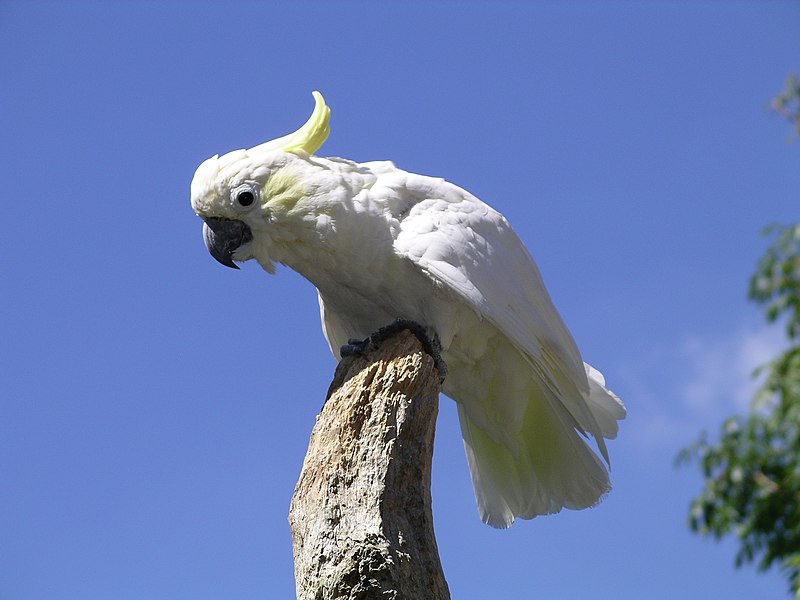
Native Solomon Island Parrots
The Solomon Islands, located east of Papua New Guinea, are home to a host of unique species, many of which are found nowhere else on earth. According to TRAFFIC’S report (see text below), the mostly wild-caught birds exported in the past decade included 18,444 Yellow-Bibbed Lories, 15,994 Solomon Cockatoos, 8,000+ Eclectus Parrots, and 10,000+ Cardinal and Rainbow Lorries.
Many Solomon Island endemics are poorly studied, and their needs are difficult to meet even in well-funded zoos. Bird trapping seriously depletes wild populations, especially where, as on the Solomons, re-colonization is not possible. A further consideration is that wild-caught parrots invariably make poor pets. In all likelihood, the 50,000+ exported birds are faring miserably in captivity.
Colleagues of mine investigated the export of huge numbers of Solomon Island Prehensile-Tailed Skinks years ago. Collecting these arboreal lizards required the felling of trees, and was carried out in conjunction with logging operations. Likewise, capturing young parrots often involves the destruction of valuable nesting trees – a rare commodity even in intact habitats – and other environmental degradation.
Non-Native Birds
The boldness of those involved in the region’s illegal bird trade is surprising. For example, also included among the exports were 13,000 birds that are not native to the Solomon Islands. These were designated as “captive bred”, but there are no records indicating how the supposed breeding stock reached the Solomons in the first place! If the birds were bred on the Solomon Islands, import permits should have been produced to show that the parents had been legally obtained. The same applies to the outrageous claim that 7 Bird of Paradise species were bred in-country.
The 13,000 non-native birds, mainly obtained from Papua New Guinea and Indonesia, included highly endangered Pesquet’s Parrots and many Chattering Lories. Amazingly, Lesser Sulphur-Crested Cockatoos were also among the exported birds. This species is listed on CITES Appendix I, and could not be legally sold even if captive bred!

In my experience, the ability of criminals to operate so openly usually indicates either government involvement (see African Gray Parrot articles below) or ineffective law enforcement capabilities. I cannot say if such were at work here, but local wildlife officials did state that they knew of no facilities that could have produced the numbers of birds claimed as captive-bred on the Solomon Islands.
Official Responses
The government of the Solomon Islands suspended trade in native species in 2006. “Sounds good on paper”…but unfortunately it continues to renew export permits for existing bird suppliers. The reason given is so that “breeders” can sell-off those birds they have on hand. But, if the TRAFFIC report is accurate, the birds involved have been, and perhaps are being, illegally taken from the wild!
In response to this and similar studies concerning reptile and amphibian sales, Malaysia has suspended wildlife imports from the Solomon Islands. Despite TRAFFIC’s urging, Singapore, the other main outlet for the Solomon’s birds, continues to allow imports.
TRAFFIC has requested that CITES launch an investigation, as restrictions imposed by that organization would focus greater attention on the situation.
What’s Next…What Can I Do?
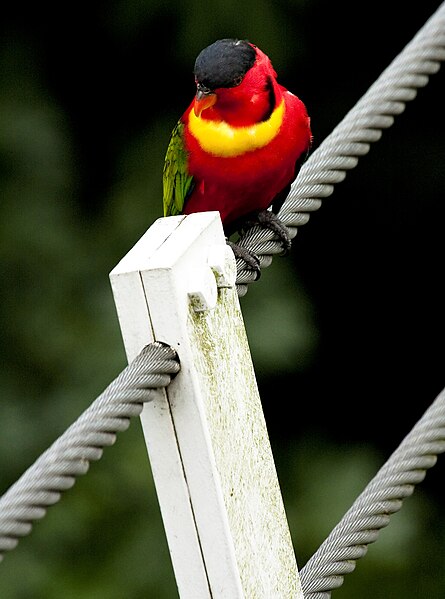 In addition to assuring that any bird or other animal you purchase or adopt has been captive-bred, please support legitimate conservation organizations in any way possible. Signing up for email updates from TRAFFIC , CITES and ThatBirdBlog is a great way to stay informed.
In addition to assuring that any bird or other animal you purchase or adopt has been captive-bred, please support legitimate conservation organizations in any way possible. Signing up for email updates from TRAFFIC , CITES and ThatBirdBlog is a great way to stay informed.
Please also post any thoughts or experiences you may have had involving the parrot trade, and be sure to write in for advice if you own or are considering obtaining a parrot or other bird.
Further Reading
Full text of the TRAFFIC report
Conservation Setback: Confiscated African Gray Parrots Returned to Dealer
Sulphur crested Cockatoo image referenced from wikipedia and originally posted by Snowmanradio
Pesquet’s parrots and Yellow-bibbed Lori image referenced from wikipedia and originally posted by Snowmanradio
 That Bird Blog – Bird Care and History for Pet Birds
That Bird Blog – Bird Care and History for Pet Birds

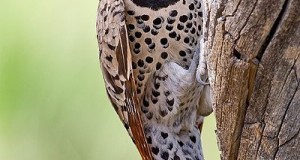
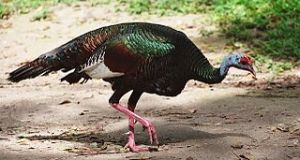
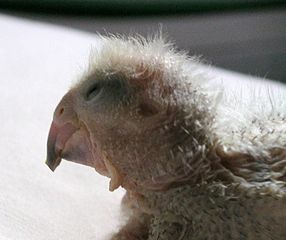
Frank, can I post this in my newsletter, Winged Things?
Send me an email address and I’ll send you a copy. I want to have an ongoing section on conservation issues.
Hi Karen,
Thanks for your interest; I;m happy to have you use the article. I’ll email some further info, Best, Frank
Hello…
I intersted to buy and import many type of parrots from the anothers cuntry in the world
but i have no idea whos the correct person or company i dealing to.
1. african grey
2. shulfur
3. rosesela
4. cockatoos
many many more
please advice me accordingly
suhaily bin ambusa
Mobile No. +60192822887 or +601128622992
from malaysia
kuala lumpur
Hello,
Unfortunately I’m not well-equipped to advise you. International trade in parrots is highly regulated by most countries. I suggest checking the regulations controlling exports in the countries that you are interested in, as well as your government’s import regulations. This would give you an idea as to what is and is not possible, legally and financially. After that, you could locate large exporters.
Best regards, Frank